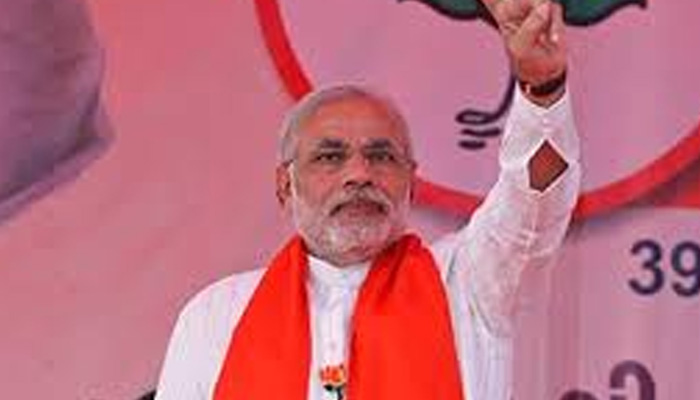There is a personal initiative of Prime Minister Narendra Modi in India’s widely lauded Intended Nationally Determined Contributions (INDCs), which entails a target for a 33-35 per cent cut in its carbon emission intensity by 2030, Union Environment Minister Prakash Javadekar said today.
“There is a complete Modi stamp on our INDCs because his commitment is full and final for Climate Change. And his commitment for sustainable development is also full and final.
“Therefore, not only INDCs are pragmatic, practical, progressive, but when he himself upscaled the renewable target or solar energy target from 20 GW to 100 GW, that was a game changer. He thinks out of the box,” Javadekar told PTI when asked about the Prime Minister’s role in finalising the country’s INDCs.
In its INDCs, released on October 2, India has pledged to improve emissions intensity of its GDP by 33-35 per cent by 2030 below 2005 levels.
It has also pledged to increase the share of non-fossil fuels-based electricity to 40 per cent by 2030 while also agreeing to enhance its forest cover which will absorb 2.5 to 3 billion tonnes of carbon dioxide, the main gas responsible for global warming by 2030.
“These INDCs have completely changed perception about India. India was always perceived to be in a negative framework…naysayer..now India is looked upon as a leading voice of developing world,” the Minister said.
Lauding the INDCs, green bodies have said that it was a much-awaited climate action plan and reflects the country’s development challenges, aspirations and the realities of climate change.
Javadekar said in its INDCs, India has raised questions on actions of developed countries to tackle climate change.
“The Prime Minister is raising two issues on the global platform and they are reflected on India’s INDCs. One is sustainable lifestyle is the real answer and unless world discusses sustainable lifestyle, one planet will not be enough.
“He is talking about climate justice. He is talking about poorer sections of the world. He is talking about developing countries of the world (through INDCs),” the Minister said.





